
Yes.
(For legal purposes I do not endorse this policy)

Yes.
(For legal purposes I do not endorse this policy)
The UK and Singapore are now nearly as important for US multinationals' profits as the Netherlands. Profits booked in Mexico and Canada remain relatively small.
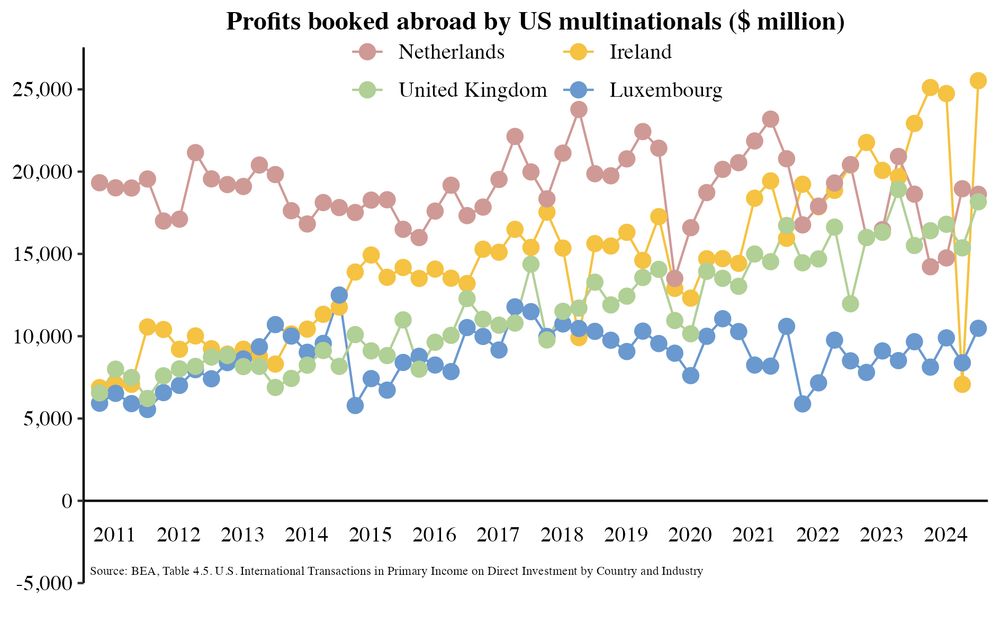
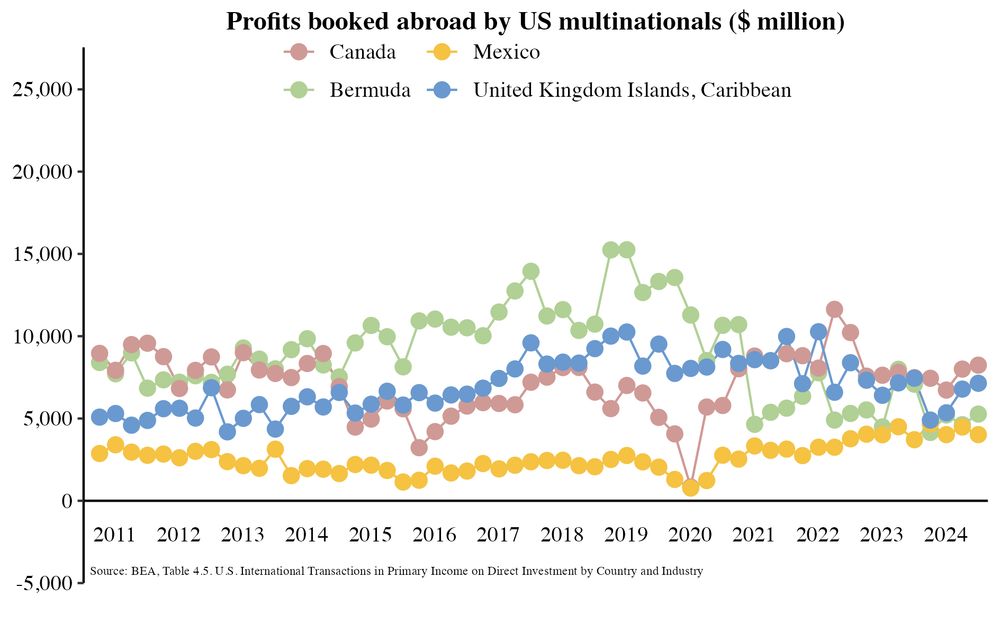
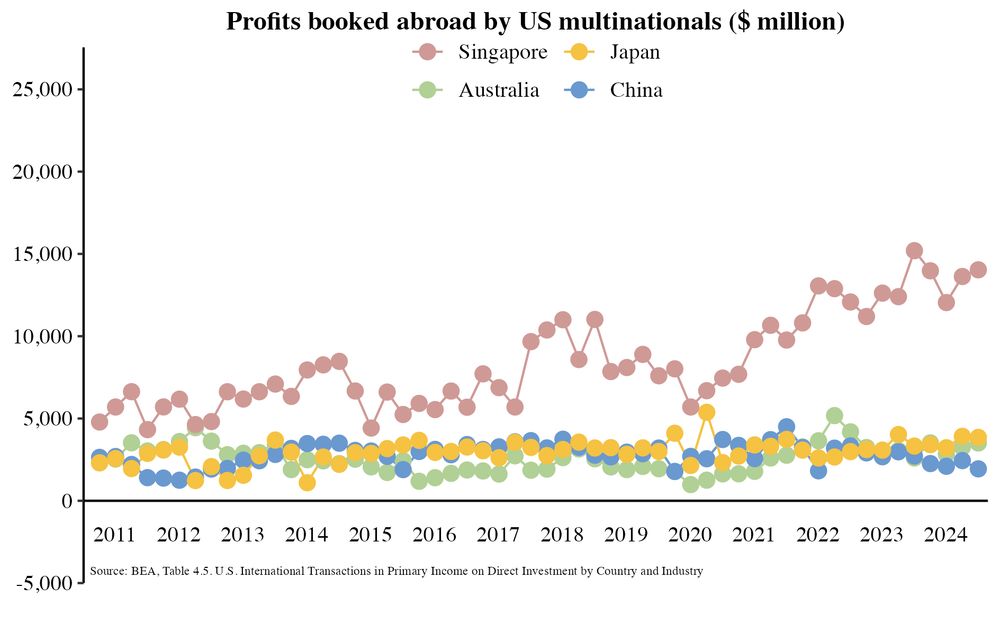
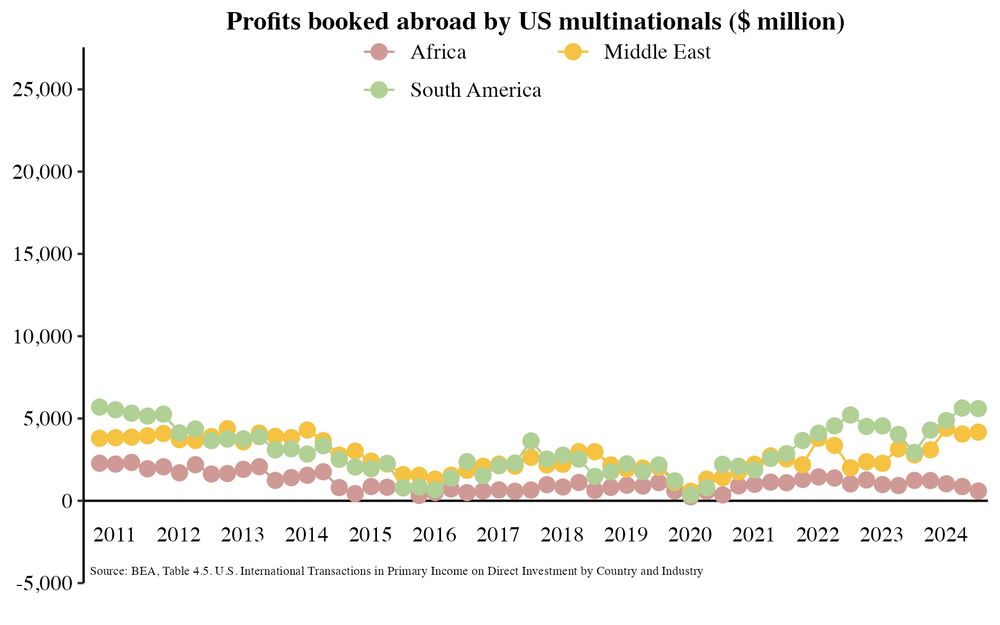
The UK and Singapore are now nearly as important for US multinationals' profits as the Netherlands. Profits booked in Mexico and Canada remain relatively small.
My slides, heavily inspired by courses by Charles Brendon, @gabrielzucman.bsky.social, and Emmanuel Saez, are here:
👉 wouterleenders.eu/KAFP3355/06_...
Feedback very welcome!
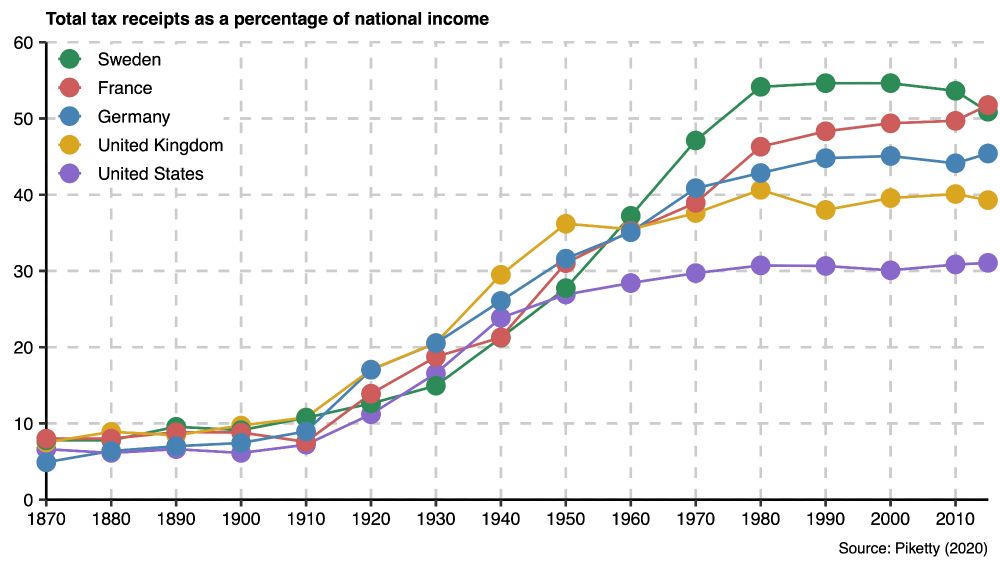
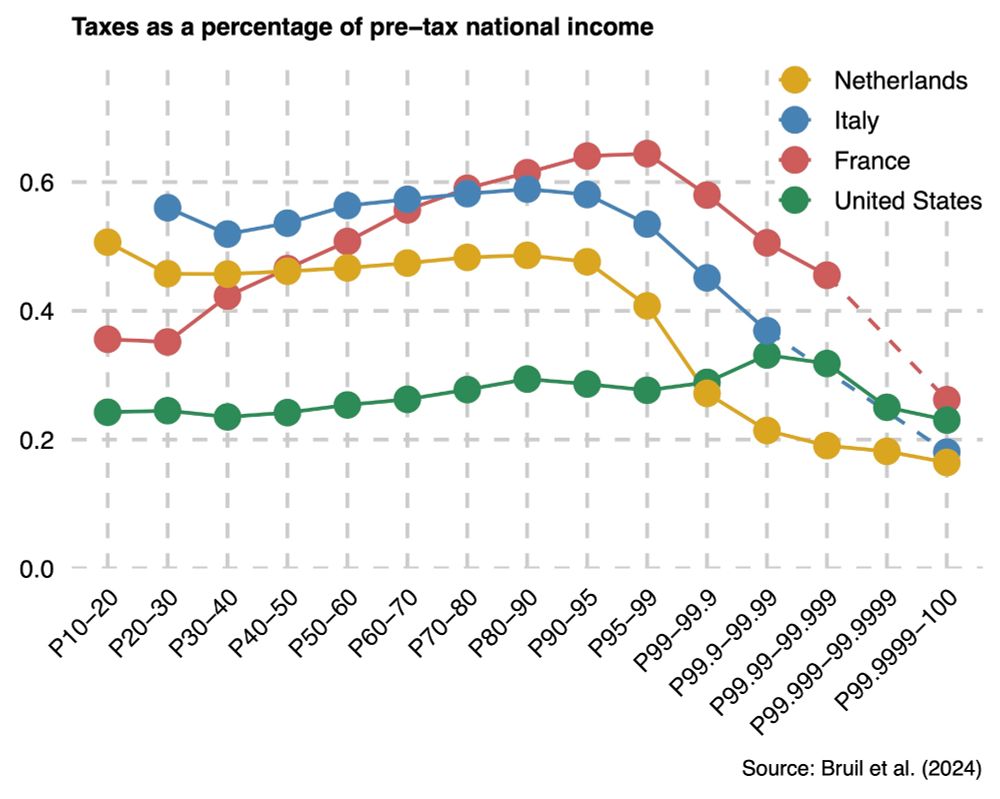
My slides, heavily inspired by courses by Charles Brendon, @gabrielzucman.bsky.social, and Emmanuel Saez, are here:
👉 wouterleenders.eu/KAFP3355/06_...
Feedback very welcome!
Solution: Large government-funded replication institutes. These institutes would be strong deterrents for bad research, improving overall research quality.
Solution: Large government-funded replication institutes. These institutes would be strong deterrents for bad research, improving overall research quality.
Key findings:
* The West is especially meritocratic.
* What drives inequality? Globally, people believe luck matters more than merit.
bit.ly/41V6zJe

Key findings:
* The West is especially meritocratic.
* What drives inequality? Globally, people believe luck matters more than merit.
bit.ly/41V6zJe
It's really taken a complete nosedive.
It's really taken a complete nosedive.
The mechanical effect also collects revenue, which is great. But both reduce inequality.
The mechanical effect also collects revenue, which is great. But both reduce inequality.
A unique program geared towards students at the beginning of their PhD, taught by leading scholars in the field, all costs covered!
Apply now
👇👇👇
sites.google.com/berkeley.edu...

(Likes on BSky / Likes on Twitter)
0 - 16
4 - 589
0 - 5
2 - 190
...where is everyone? Any hints welcome!
(Likes on BSky / Likes on Twitter)
0 - 16
4 - 589
0 - 5
2 - 190
...where is everyone? Any hints welcome!
The idea is that people increased their housing expenditure to keep up with their neighbors' increased spending, fueling unsustainable demand.
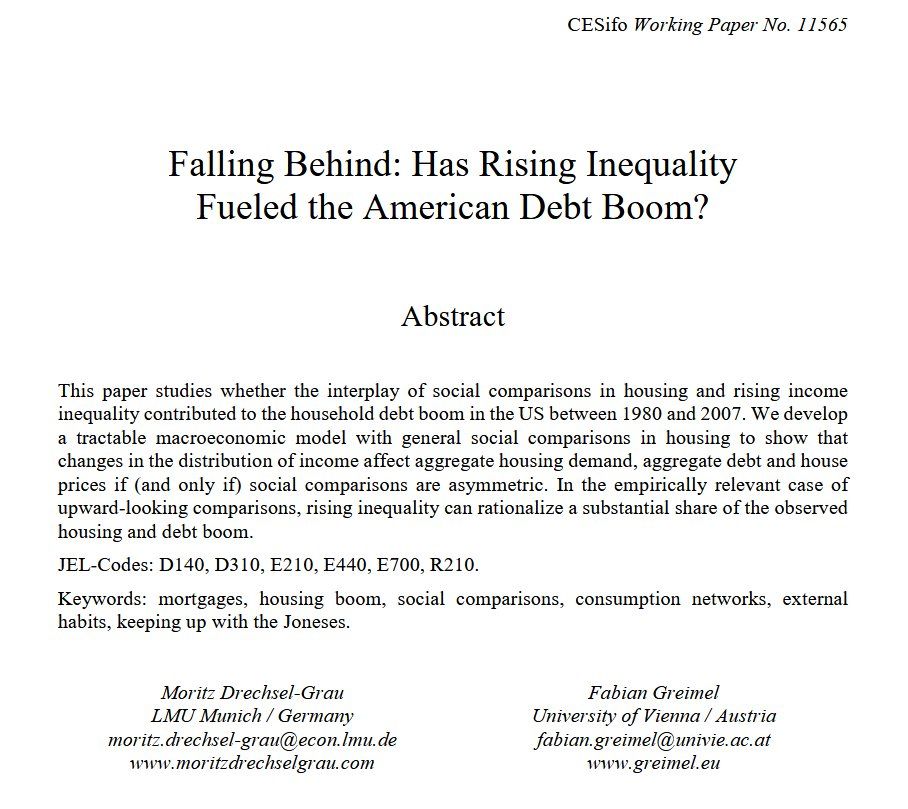
The idea is that people increased their housing expenditure to keep up with their neighbors' increased spending, fueling unsustainable demand.
An AI summary of their explanations when asked why:
"Economic inequality enables the wealthy to exert disproportionate influence on political processes, [...] undermining democracy."

An AI summary of their explanations when asked why:
"Economic inequality enables the wealthy to exert disproportionate influence on political processes, [...] undermining democracy."


www.g20.org/en/documents...
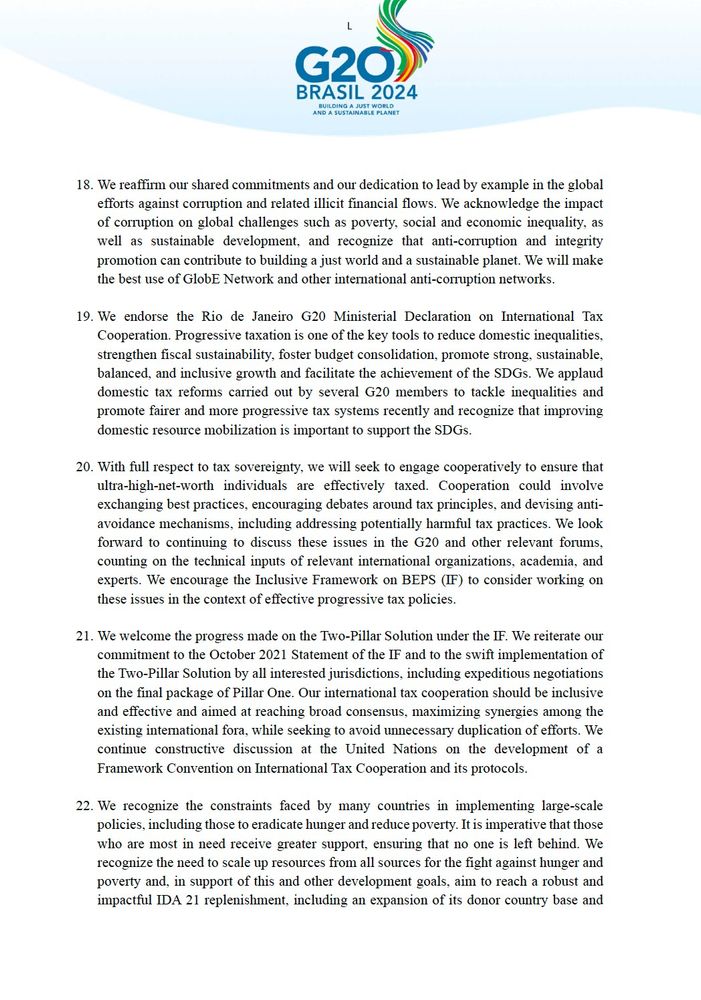
www.g20.org/en/documents...

